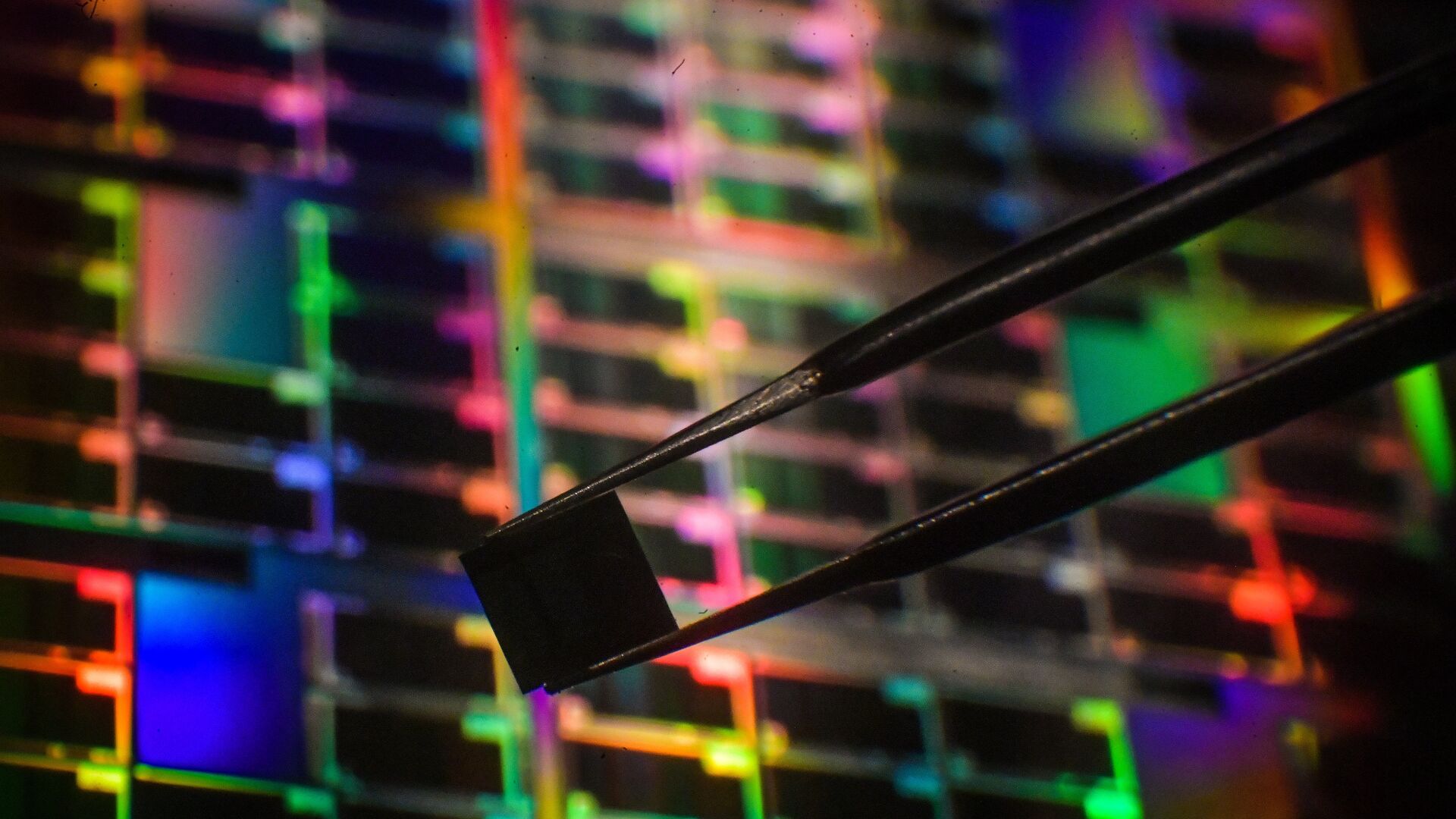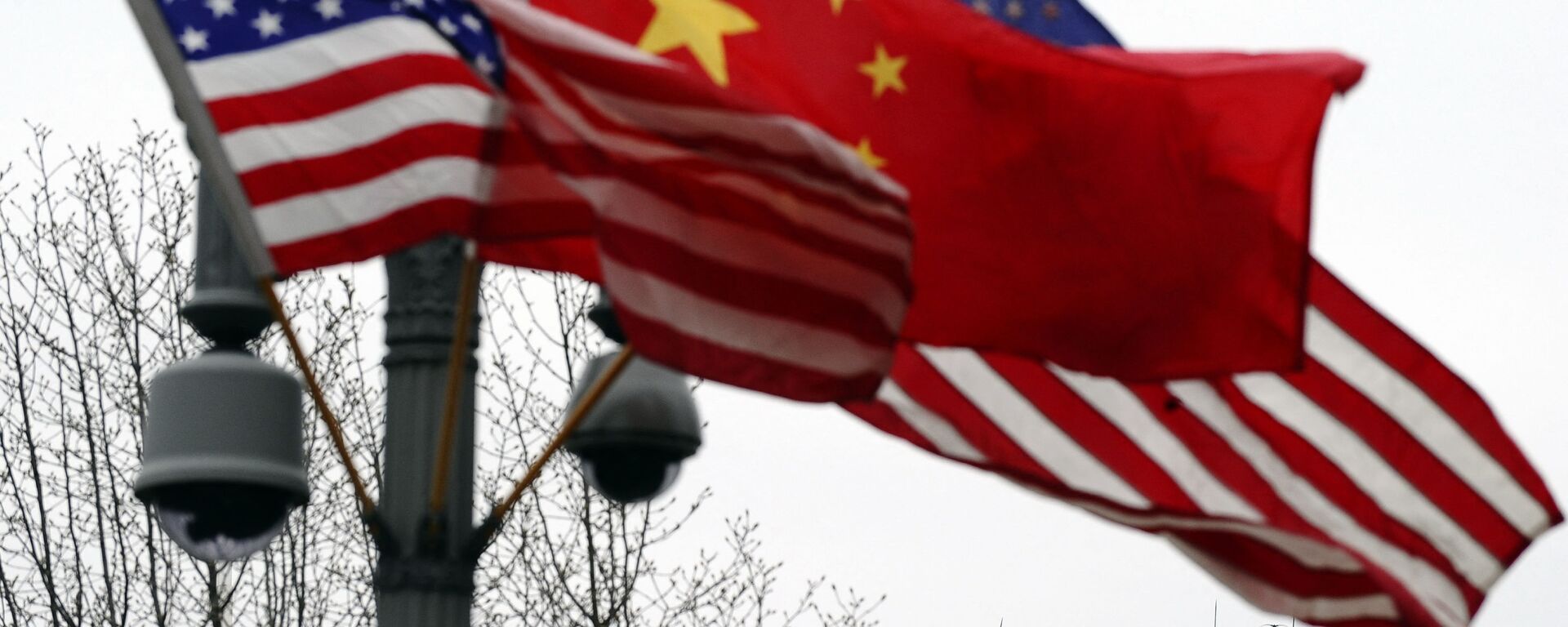‘Really Silly Actions’: US Efforts to Isolate China’s Tech Sector Will Backfire, Expert Says
17:30 GMT 31.01.2023 (Updated: 20:06 GMT 31.01.2023)

© Sputnik / Alexei Kudenko
/ Subscribe
The US has pushed its own businesses and those of its allies to “decouple” from China as part of Washington’s effort to pursue “great power competition” with Beijing and Moscow. However, with the global economy more integrated than ever, cutting the world’s second-largest economy out from the rest is essentially impossible.
The US has expanded its efforts to isolate China’s tech sector from advanced technology used by Western firms, especially high-end semiconductors and the microchips they’re used to make. Taiwan and South Korea have faced extensive pressure to limit sales to China, but more recently Washington has pressured Tokyo and Amsterdam, too. Meanwhile, Chinese tech firms have been rushing to adapt.
Thomas W. Pauken II, author of "US vs China: From Trade War to Reciprocal Deal," a consultant on Asia-Pacific affairs and a geopolitical commentator, told Sputnik that “people become most innovative in a crisis or they have no choice but to be innovative.”
“In this scenario, if Huawei cannot receive supplies from US companies, and let's say, for example, the Europeans also play ball and don't export to Huawei or other Chinese companies, this will simply require Chinese companies to become more innovative in their own market,” Pauken observed.
The author noted that China is “well-positioned” to innovate as the US pressures other nations to “decouple” from China’s economy.
“Of course, in the short term it will have an impact. Every type of punishment does. But in the long run, it actually hurts the US tech companies and the US economy much harder,” Pauken observed.
Indeed, the White House’s most recent efforts have already produced innovative fruits in Shenzhen.
Insider reports quoted in US media have said that Dutch and Japanese officials have agreed after talks with their US counterparts to abide by the US’ ban on selling the most advanced semiconductor chips to Chinese companies, including Huawei, which the US moved toward a total ban on doing business with late last year. The agreement will block Chinese companies from buying from the Dutch firm ASML, presently the world’s only producer of high-end microchips using extreme ultraviolet (EUV) lithography. However, last month, reports in Chinese media indicated Huawei had filed for a patent on EUV lithography, evidently an innovation the Shenzhen-based tech giant had been working on for years.
The US’ effort extends beyond Huawei, however, to China’s efforts in the fields of AI, quantum, cyber, 5G, and advanced semiconductors - all fields in which Chinese companies have been making great gains and even taken the lead over their American counterparts in some cases.
Chris Devonshire-Ellis, Chairman of Dezan Shira & Associates who has a 30-year-old investment and business career in China, Russia and Asia, told Sputnik that the US and China have different capabilities.
“There are differences between the two countries' capabilities: China has more total patents across the full spectrum of quantum technology, but US companies have a lead in quantum computing. It is a technical, digital race.”
Devonshire-Ellis predicted that the consequences of this race would be to divide the world, with “the loser not wanting to be subject to the whims of the winner.”
Could China retaliate for the US sanctions and trade bans? Pauken said they don’t need to, they just need to anticipate such moves and believe they will be followed through, because “the US and Europe will end up punishing themselves more so than the Chinese.”
“There really isn't a reason for the Chinese to even hit back, because this is a case of the US and Europe hurting itself, shooting itself in the foot, as the saying goes, ‘cutting off the nose to spite the face,’” he said. “These are really silly actions.”
Devonshire-Ellis noted that even if China did not retaliate in kind, the US’ efforts have “completely disregarded” the World Trade Organization’s (WTO) rules regarding “fair competition.”
“There is a growing feeling in the emerging world that global institutions are being shown to have a US bias or [are fit] to be cast aside as irrelevant as the US does what it wishes. That has and is leading to a distrust of the US and of institutions that are shown to be overly influenced by Washington. This includes the World Bank, NATO, and the WTO among many others. These institutions are now being challenged and alternatives are emerging – without the presence of the US, and in many cases as well, the European Union. Both Washington and Brussels are being diminished beyond their immediate comfort zones because of this.”
That said, Pauken noted that if the US-Dutch-Japan ban does go into full effect, it would “have a huge impact.”
“Some of the countries are very upset about this and they're looking for some type of compromise or to get their names off the restrictions list from their countries. I mean they could have a verbal agreement, but it doesn't mean it's an agreement written on paper. The agreement on paper will probably look different than what apparently the newspapers are saying,” he told Sputnik.
The analyst noted that the Japanese have not totally agreed to the US’ terms because of Japan’s close trade relationship with China, especially their tech sectors, which “are making quite a bit of money.”
“To actually follow through on such restrictions would create tremendous harm to Japanese companies. And this was a major issue of concern also with many South Korean companies as well. They have factories, they have a lot of semiconductor plants like South Korea does here in Shiyan and, and some other places in China. Basically, they're being told that they have to stop and shut down these foundries. And OK, who's going to pay them to shut down those foundries? Is it going to be the US?”
He noted the same is likely true of an agreement with Amsterdam.
“If the Netherlands actually agree to this on paper, then that would be devastating to their economy. Recently, they changed environmental rules, so they practically destroyed their agriculture because of new environmental rules. So right now, their only real sector is either tourism or the chips industry. So obviously, if they lose a major customer from China, this will have a very deep impact on them. I really don't believe that they have a paper agreement claiming that they actually agreed to what the newspapers are saying. And this is why a lot of times these treaties and agreements are never disclosed to the public,” he observed.
Pauken accused the US of “trying to create a crisis” by pushing policies on other countries that don’t “make sense business-wise.”
“I just don't see it happening with these countries actually going in ahead, signing some, the US and their country, agreement specifying exactly what they're claiming to the media. And this is very common. This is a very common occurrence. I always find it interesting that the media never ask specifically, ‘can you show us the agreement papers? Can you show us what is exactly in writing?’ The Western media doesn't do it that often. I would advise them that they should start spending more time looking at the actual documents.”
Devonshire-Ellis noted that the Dutch response follows the EU’s perspective, which is to closely follow what the US says. While Japan has had some more independence from Washington, especially economically, its superiority to China in the field of robotics is undoubtedly connected to its close relationship with the US.
“But how long that lasts, is open to debate,” he said.
“Overall, it should be mentioned that many of the component parts that go into semiconductors, including precious metals, rare earths and gasses, and the technologies required, are already in possession of Russia and China and its allies. This is also the case with energy reserves. The West, in time, will need access to these in order to continue a drive towards supremacy. The crunch time isn’t now – it’s when the West finds it needs to rely on Russia and China and their allies to continue to manufacture the super semi-conductors they are technically capable of designing.”
“Short-term, the US decision makes sense for Washington. But longer term it could prove to be highly damaging should Russia and China invoke reciprocity and refuse to supply the West with the core ingredients.”




